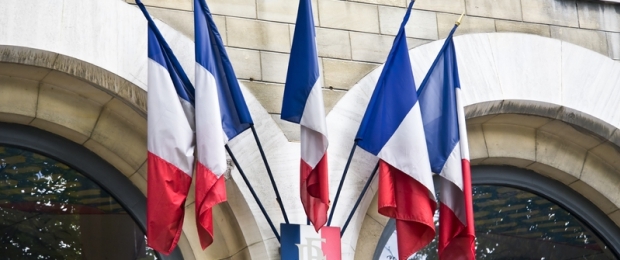
Will the French vote 'Non'
President Jacques Chirac recently declared that the French referendum on the EU's constitutional treaty would take place "before the summer", and not in the second half of 2005 as previously planned. Chirac seems in a hurry. Opinion polls indicate falling support for the treaty, from 64 per cent last September to 59 per cent in January. In 1992, when the then-President François Mitterrand called for a referendum on the Maastricht treaty, opinion polls showed 65 per cent of the population in favour. In the event, only 51 per cent voted Oui. Understandably, Chirac would prefer to avoid such a nail-bitingly close result, not to speak of an outright Non.
But why would France vote No? The French people are traditionally pro-European. The national press and the mainstream political parties support the constitutional treaty. The opposition Socialist party was initially divided, with former prime minister Laurent Fabius heading the No camp. But in December 2004, the pro-treaty Socialists comfortably won an internal ballot on the issue.
As a result, the anti-treaty campaign will consist chiefly of extremist parties such as Le Pen's National Front, and nationalists like Philippe De Villiers, leader of the Movement for France. The Communist party will also oppose the treaty. But so far, and in contrast to the UK, none of the main opponents has made much noise. In any case, the document does not introduce the kind of radical changes that might scare people, as did, for example, the Maastricht treaty that introduced the euro.
However, the French government cannot take a Oui for granted. Chirac's popularity is low. His conservative party, the UMP, was trounced in last year's regional and European elections. The government has carried out painful reforms on social security, pensions and unemployment benefits, without having first secured public support. Recent polls show the French to be pessimistic and deeply anxious about their future. Many of them could use the referendum as an opportunity to give the government a bloody nose. Moreover, French voters are showing signs of disenchantment with the EU. In particular, a majority is hostile to Turkey joining the Union. Most French voters perceive Turkey as a big, Muslim, non-European country. They fear that more immigrants will come to France and more French companies will relocate to low-cost Turkey.
The constitutional treaty and the question of Turkish membership are not directly linked. But there is a risk that French voters could oppose the treaty as a way of protesting against the talks on Turkish accession that are due to start in October. In a bid to convince the French that the two questions are unrelated, Chirac has promised a separate referendum on Turkish entry. But such a referendum would not take place until Turkey is ready to join, which may be a decade or more away.
French hostility to Turkey's membership is deep-seated and rests on more than cultural and religious arguments. France has traditionally felt a sense of ownership of the EU. However, the latest EU enlargement from 15 to 25 member-states has created a different kind of Union, one from which the French feel more and more estranged. They fear that France's influence and vision of Europe is becoming diluted in a large, loose and liberal Union.
Successive French governments have actively contributed to the EU's economic agenda, such as the creation of the single market and the euro. But at home they have continued to talk about the need to defend a 'social Europe'. The government has failed to prepare domestic public opinion for the way the EU is changing. Now the French are waking up to the fact that the EU is very much about open markets and competitiveness. People are struggling to accept that an enlarged and fast-changing EU resembles British ideas more closely than the old Gallic vision.
However, by voting Non France would trigger an unprecedented crisis that would endanger both the whole edifice of the EU and French influence within it. A French No would probably kill off the constitution for good, forcing the EU governments to engage in a renegotiation of the existing treaties. In any case, France could hardly claim to be at the core of Europe or one of the EU's leading countries.
The referendum provides the French government with a unique opportunity to sell the enlarged EU to the French people and renew France's old pact with Europe. Enlargement inevitably decreases the influence of any member-state. But France still has the means and the opportunities to defend its vision of the EU. A resounding Oui would be the first step towards ensuring that France continues to play a leading role in moulding the Union.
Aurore Wanlin was a research fellow at the CER (2004-2007)
